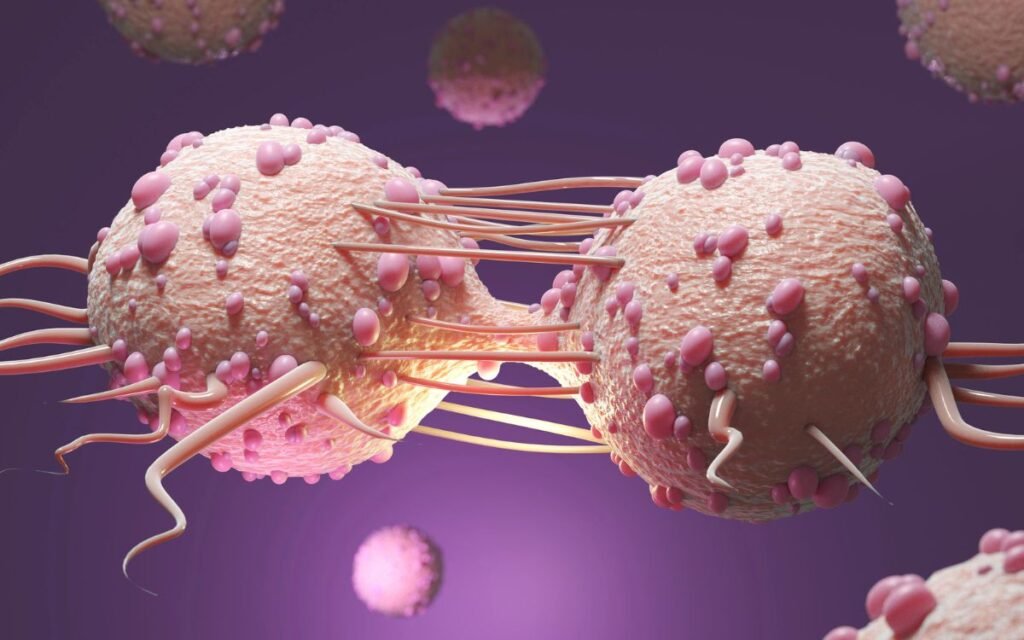ESMO 2023: LBA18
Underpinning this approval is the seminal KEYNOTE-522 trial, a Phase III study that diverges from pre-2021 tactics heavily reliant on doxorubicin-cyclophosphamide and paclitaxel. Instead, this trial pioneers immunotherapy and chemotherapy, steering a significant treatment shift that departs conventional protocols.
Clinicians now recognize pembrolizumab and chemotherapy as a superior initial line of attack, particularly for cases exhibiting a PD-L1 CPS of 10 or more. This insight holds without regard to the patient’s underlying BRCA1/2 genetic blueprint. The criticality of PD-L1 levels, determined via the 22C3 antibody assay, underscores the role of immune response in influencing treatment outcomes.
Recent follow-up data, extending to March 2023, showcases the therapy’s efficacy with a median review of 63.1 months. Participants receiving pembrolizumab reported a robust 60-month event-free survival, significantly higher than their counterparts. These promising results were consistent across various demographics, including distinctions based on PD-L1 status and nodal profiles. Further analysis revealed that patients reaching a pathological complete response fared exceptionally well over five years, a benefit that extended even to those falling short of a PCR.
As investigations continue, the pembrolizumab-chemotherapy alliance is set to cement itself as a front-line contender in managing TNBC, with expectations running high for its market performance in the United States as we move through 2022. The healthcare community eagerly awaits more comprehensive data, particularly concerning overall survival rates, optimistic that this innovative duo will continue demonstrating paramountcy in combating this challenging form of cancer.
Also Read: ESMO 2023: GSK’s Jemperli Beats Merck’s Keytruda In Lung Cancer Survival Trial
In Conclusion
In conclusion, the strategic amalgamation of Keytruda with chemotherapy heralds a transformative phase in the therapeutic landscape of triple-negative breast cancer, shifting away from erstwhile methodologies. This innovative approach, underpinned by the robust KEYNOTE-522 trial, underscores the efficacy of pembrolizumab in synchrony with chemotherapy, particularly in cases with significant PD-L1 expression. The compelling survival statistics of this regimen, evident in the substantial improvement in 60-month event-free survival rates, reinforce its potential as a cornerstone in TNBC management.
As the medical community anticipates further insights from ongoing overall survival analyses, the current findings substantiate the expectation that this novel combination therapy will gain substantial traction within the US market. This paradigm shift, emphasizing the synergy between immunotherapy and traditional chemotherapeutic strategies, is poised to significantly influence decision-making in oncology, guiding clinicians towards more personalized, effective treatment plans and offering renewed hope to patients battling high-risk, early-stage TNBC.





























